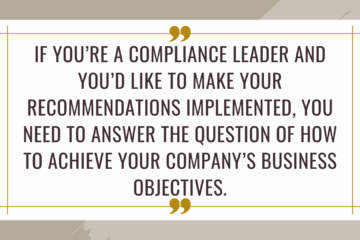Best Practices in Marketing Communications

1) Making market predictions or offering personal investment advice
Many startups and especially startup founders are "tempted" to make market predictions and offer personal investment advice to their audiences. Please, be aware that giving financial advice is a licensable activity and giving such advice without a license is a crime (and can also be problematic from the standpoint of market manipulation laws). Yes, everybody knows you can see the future better than others, but some self-control in that area goes a long way

The investment advice regulations specifically say that “placing special emphasis on the advantages of one product over others in a way that would tend to influence the decision… could amount to a personal recommendation rather than the mere provision of information”. That is why I suggest you should refrain as much as possible from comments on how the market may behave or what it could mean for your audience.
What is safe to say:
- Quote listings of prices, refer to alerts that certain instruments reached a certain price;
- Company news or announcements;
- Explanation of the terms and conditions of a service or product feature;
- Comparison of the benefits and risks of one option as compared to another, performance metrics of a few instruments or options.
2) Creating self-composed rankings or top-lists
All marketing materials and customer-facing communications must be honest, unbiased and verifiable. It is possible that for public statements such as “we are the leading company in our niche”, “the fastest...”, “the cheapest...” or any other “the #1 in ...” you can be required to produce factual evidences and if the statements are unsubstantiated, it could be interpreted as unfair competition. It is always safer to say “one of the …” or “among the best leading…”
3) Limit prices or markets or consumer choices
Never speak publicly or privately on any of the following topics:
- possible divisions of customers, markets, territories or countries (e.g. bad idea to say “we won’t enter this market because we don’t want to compete with Company X”)
- say or imply that someone should boycott a product, competitor, vendor, etc.;
- say that you align your process with the ones of competitors - remember, that you always set prices independently (when Booking.com says they "price-match" it's not the same - they don't sell the offers, they place quotes of others on their website)
- make/participate in non-hiring agreements with anyone.
Yes, I know, if you are a startup founder, you might feel you should be able to talk freely and promote your business, and every single competitor of yours (and even their cat videos) are more aggressive and blunt comparing to your moderate language, but trust me on this - when authorities issue a warning or a notice about your company saying that "Company XXX is not authorized to perform investment activities and is not regulated by us", you won't like it at all (because google will make is discoverable forever). And if you'd like to quickly and easily enhance your company governance and implement best practices around code of conduct, conflict of interest or marketing communications, consider using my Company Governance Templates bundle, specifically designed for FinTech startups.

 DO NOT RELY ON THE STATE TO PROVIDE PROSPERITY OR STABILITY. WHEN SOMEONE BLAMES MARKET INEFFICIENCY AND ASKS FOR MORE REGULATION,
DO NOT RELY ON THE STATE TO PROVIDE PROSPERITY OR STABILITY. WHEN SOMEONE BLAMES MARKET INEFFICIENCY AND ASKS FOR MORE REGULATION,